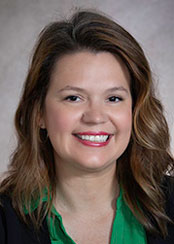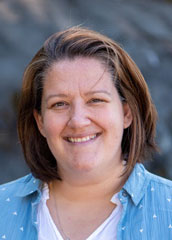The Empowering Sustainable Pedagogical Innovation grant was received from the Davis Educational Foundation, established by Stanton and Elisabeth Davis after Mr. Davis' retirement as chairman of Shaw's Supermarkets, Inc. In addition to funding the Teaching Scholars Program, the grant will support the development of an on-demand, interactive course planning tool that supports faculty in innovative course design. The tool will provide access to faculty who are interested in building courses using backward design and principles of universal design at their own pace.
For more information about the grant or the Teaching Scholars Program, contact Project Director Courtney Broscious or Project Coordinator Julia DeLapp.


 From Self to Scholar: The Impact of Autoethnography on Students' Transformative learning in a Public Health Course
From Self to Scholar: The Impact of Autoethnography on Students' Transformative learning in a Public Health Course Making Thinking Visible: Teaching Transferable Thinking Routines in ENG 227: Poetry
Making Thinking Visible: Teaching Transferable Thinking Routines in ENG 227: Poetry Enhancing Feelings of Belonging and Well-Being in Undergraduate Students
Enhancing Feelings of Belonging and Well-Being in Undergraduate Students
 Can Microlearning Enhance Student Engagement and Learning?
Can Microlearning Enhance Student Engagement and Learning? Cultivating Connection Across Difference: Evaluating Teaching Practices in a Senior Seminar for Social Work Students
Cultivating Connection Across Difference: Evaluating Teaching Practices in a Senior Seminar for Social Work Students Victims First: Rethinking True Crime through an Empathetic Lens
Victims First: Rethinking True Crime through an Empathetic Lens Using a Group Process Intervention to Improve the Implementation of Group Work in a College Classroom
Using a Group Process Intervention to Improve the Implementation of Group Work in a College Classroom Integrating Narrative Identities into Group Work
Integrating Narrative Identities into Group Work